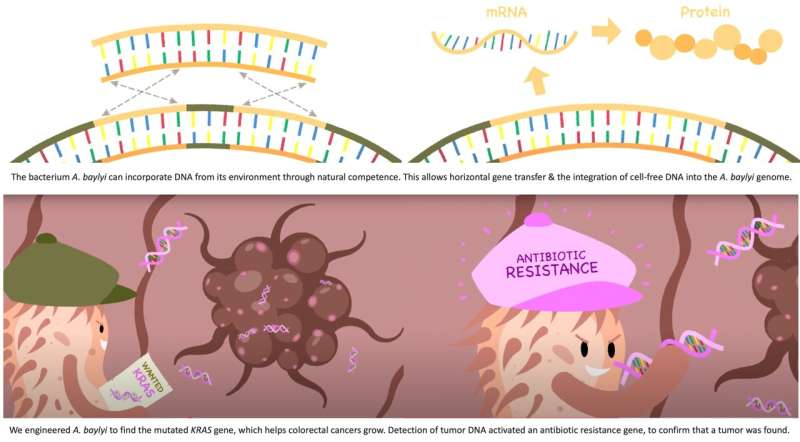Researchers engineer bacteria that can detect tumor DNA
Originally published by University of California - San Diego, on August 10, 2023
Upper: The bacterium A. baylyi can incorporate DNA from its environment through natural competence. This allows horizontal gene transfer and the integration of cell-free DNA into the A. baylyi genome. Lower: Researchers engineered A. baylyi to find the mutated KRAS gene, which helps colorectal cancers grow. Detection of tumor DNA activated an antibiotic resistance gene to confirm that a tumor was found. Credit: Cooper et al
Pushing into a new chapter of technologically advanced biological sensors, scientists from the University of California San Diego and their colleagues in Australia have engineered bacteria that can detect the presence of tumor DNA in a live organism.
Their innovation, which detected cancer in the colons of mice, could pave the way to new biosensors capable of identifying various infections, cancers and other diseases.
The advancement is described in the journal Science. Bacteria previously have been designed to carry out various diagnostic and therapeutic functions, but lacked the ability to identify specific DNA sequences and mutations outside of cells. The new "Cellular Assay for Targeted CRISPR-discriminated Horizontal gene transfer," or "CATCH," was designed to do just that.



Comments
Post a Comment